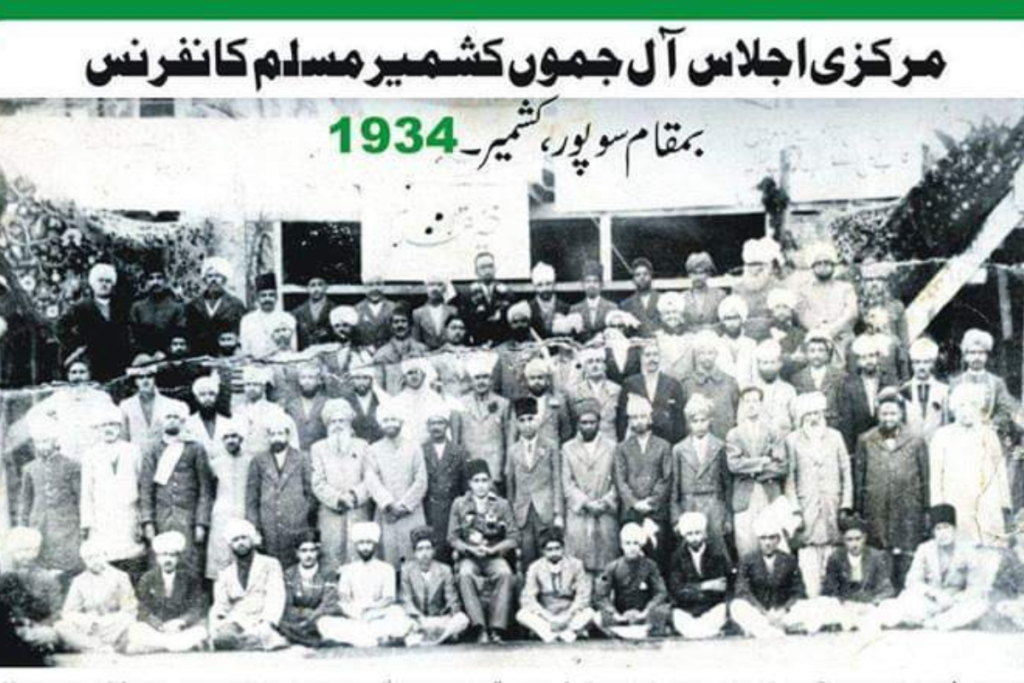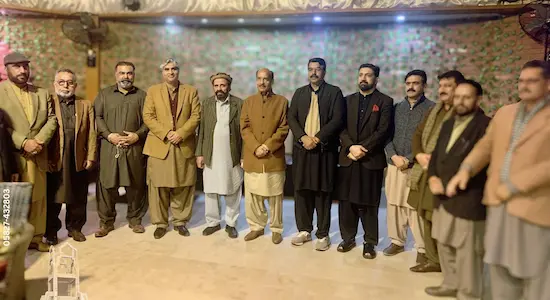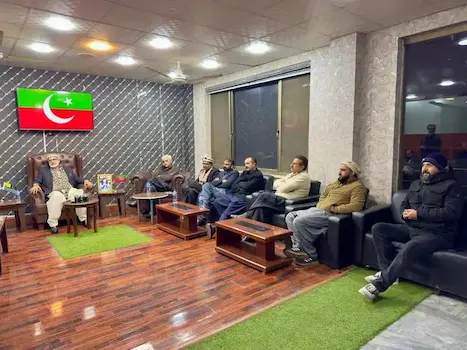Chaudhry Ghulam Abbas (1904–1967), affectionately known as Ghulam Abbas, was a remarkable lawyer, politician, and freedom fighter. Often referred to as Quaid-e-Kashmir, he devoted his life to empowering Kashmiri Muslims and advocating for the liberation of Jammu and Kashmir. His leadership, bravery, and unwavering commitment continue to inspire countless generations of Kashmiris and Pakistanis.
Early Life and Education of Chaudhry Ghulam Abbas
Born on February 4, 1904, in Jammu to a middle-class Gujjar family, Chaudhry Ghulam Abbas pursued his education at Prince of Wales College in Jammu. Laterhe earned his law degree from Lahore Law College.
Afterward, He kicked off his legal career in Jammu; but he turned down a Sub-Judge position in order to avoid serving under the oppressive Dogra Raj. These early experiences fueled his lifelong passion for justice and the rights of the Kashmiri people.
Political Awakening and the Muslim Conference
At a time when the Muslim majority in Jammu and Kashmir faced political marginalization, Chaudhry Ghulam Abbas took the initiative to reorganize the Young Men’s Muslim Association, which had originally been founded in 1909. This organization became a vital platform for raising political awareness, organizing protests against Dogra rule, and earning the respect of the masses.
To further safeguard Muslim rights, the All Jammu and Kashmir Muslim Conference was formed. Sheikh Abdullah initially took on the role of president, while Chaudhry Ghulam Abbas served as the secretary general. However, when Sheikh Abdullah aligned himself with Nehru and the All India National Congress, Abbas revitalized the Muslim Conference as the true voice of Kashmir’s Muslims.
On July 19, 1947, under his leadership, the Muslim Conference passed a groundbreaking resolution advocating for Kashmir’s accession to Pakistan, underscoring Abbas’s crucial role in the struggle for Kashmir’s freedom.

Leadership in Azad Jammu and Kashmir
After the ceasefire in 1948, Chaudhry Ghulam Abbas made his way to Pakistan and took the reins as the head of the Azad Jammu and Kashmir (AJK) government, a role he held until 1951. Alongside Sardar Muhammad Ibrahim Khan, he stood for Pakistan at the United Nations, passionately advocating for Kashmir’s case when India sought international intervention. This pivotal effort resulted in the creation of the cease-fire line, which effectively divided Indian-administered Kashmir from Azad Kashmir.
His leadership played a crucial role in ensuring that the hopes and dreams of Kashmiri Muslims were voiced both nationally and internationally, solidifying his status as a significant figure in the political landscape of Azad Kashmir.
Advocacy, Social Work, and Literary Contributions
Chaudhry Ghulam Abbas was more than just a political leader; infact, he was also a fervent social advocate. He championed the rights of Kashmiris, emphasizing the need for education and political engagement. His autobiography, Kashmakash, chronicles his political journey and the challenges he faced, providing a glimpse into his vision for a liberated and just Kashmir.
He is fondly remembered as Rais-ul-Ahrar (Leader of the Free) for his relentless pursuit of freedom and justice for the people of Kashmir.
Death and Lasting Legacy
Chaudhry Ghulam Abbas passed away on December 18, 1967, in Rawalpindi after battling stomach cancer. Staying true to his wishes, he was laid to rest in Faizabad, near Rawalpindi, Pakistan. In honor of his contributions, Pakistan Postal Services issued a commemorative stamp celebrating his legacy.
Today, he stands as a beacon of courage, vision, and commitment, inspiring future generations of leaders and activists in the ongoing Kashmir freedom movement.
Conclusion
Chaudhry Ghulam Abbas’s life is a testament to visionary leadership and unwavering commitment. From organizing the Muslim Conference to leading the Azad Kashmir government and presenting the Kashmir case at the United Nations, his contributions shaped the political landscape of Jammu and Kashmir.
By honoring Chaudhry Ghulam Abbas, we recognize the sacrifices made by those who fought for the rights and freedom of the Kashmiri people. His story remains a powerful reminder of the enduring struggle for justice and self-determination.
Also read, Ch. Mohammed Akhtar Hussain(KORT) – Pride Of Kashmir









